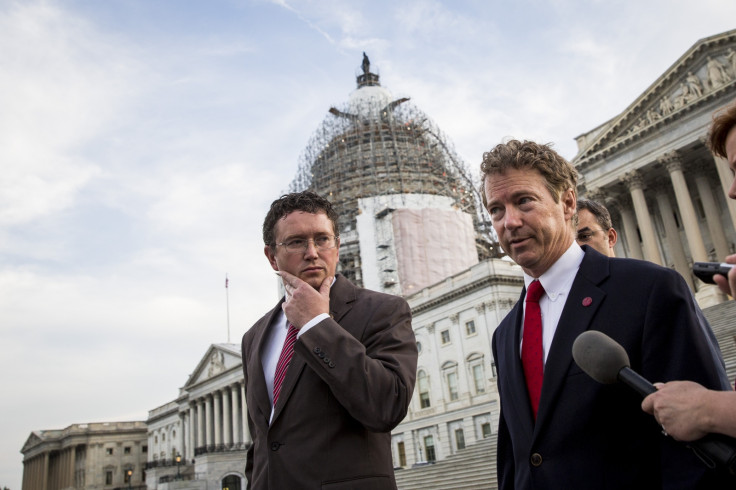The Patriot Act has expired, but will the USA Freedom Act really get rid of mass surveillance?

At midnight on 31 May, the Patriot Act, which granted the National Security Agency (NSA) sweeping mass surveillance powers during George W Bush's era of power since 2001, finally expired.
Following a debate on NSA mass surveillance, not only did the US Senate decide to allow the Patriot Act to expire – a complete turnaround from the strong opposition seen in recent weeks –but it also voted 77 to 17 to advance the USA Freedom Act to a final vote tomorrow (2 June).
The USA Freedom Act is a bill that was first drafted in 2013 and has never been approved, but how does it differ from the Patriot Act? Is mass surveillance and the bulk collection of communications data still possible?
Join IBTimes UK as we explain what the new legislation could mean for US citizens, and by extension, the rest of the world.
How does the Patriot Act work?
The Patriot Act was signed into law in October 2001 after the 9/11 attacks. In particular Section 215 of the act made a change to the Foreign Intelligence Surveillance Act 1978, enabling the FBI or an agent designated by the FBI director to acquire access to "any tangible things" – all documents and records – if they helped to protect the US against international terrorism.
In 2011, the Electronic Frontier Foundation (EFF) got wind that US authorities had used "secret interpretations" in order to justify some sort of mass surveillance programme, and after the US government refused to grant a freedom of information request, the EFF sued the government.
Then in 2013, not only did a court order prove that this was true, but former NSA contractor Edward Snowden also revealed the existence of PRISM, a programme whereby the NSA collected phone records and internet communications in bulk, which affected not just US citizens, but citizens and governments all over the world.
Now Section 215 has officially lapsed, no US intelligence agency has any legal ground to obtain this information.
What is the USA Freedom Act?
The USA Freedom Act is a piece of legislation that was first introduced, in different versions, to the two houses of Congress – the Senate and the House of Representatives – in October 2013 after Snowden's revelations became a talking point, with the intention of restricting the powers of intelligence agencies.
This bill has so far failed to be passed by the Senate twice, but this time, although Grand Old Party (GOP) Republican senators such as Mitch McConnell wanted the Patriot Act extended, and senior military and intelligence officials claimed mass surveillance was crucial to US national security, even Republican senators like Rand Paul decided reform was necessary.
The USA Freedom Act doesn't completely prevent authorities from obtaining encrypted data. Instead, it says that rather than just collect all the data in bulk, the NSA can only ask companies, such as Facebook or AT&T for example, for the data relating to one specific individual, account or device.
The authorities also have to provide proof to the company that the individual is connected with a terrorist group or foreign power.
More transparency over mass surveillance
The bill also requires a great deal more transparency over the way that intelligence agencies collect data – for example, a panel of experts is now allowed to challenge the government in the Foreign Intelligence Surveillance (FISA) Court if it disagrees with a federal judge's approval of wiretap, data collection or other surveillance requests.
The 17 senators who voted against the USA Freedom Act are concerned that terrorists could use the new law to challenge the US government's actions.
Also, terrorists have been known to use disposable burner phones which they change with great frequency, so if intelligence agencies can no longer use roving wiretaps, which pick up lots of data on all mobile phones in a specific geographic location, then they have a reduced chance of locating their suspects.
© Copyright IBTimes 2025. All rights reserved.






















